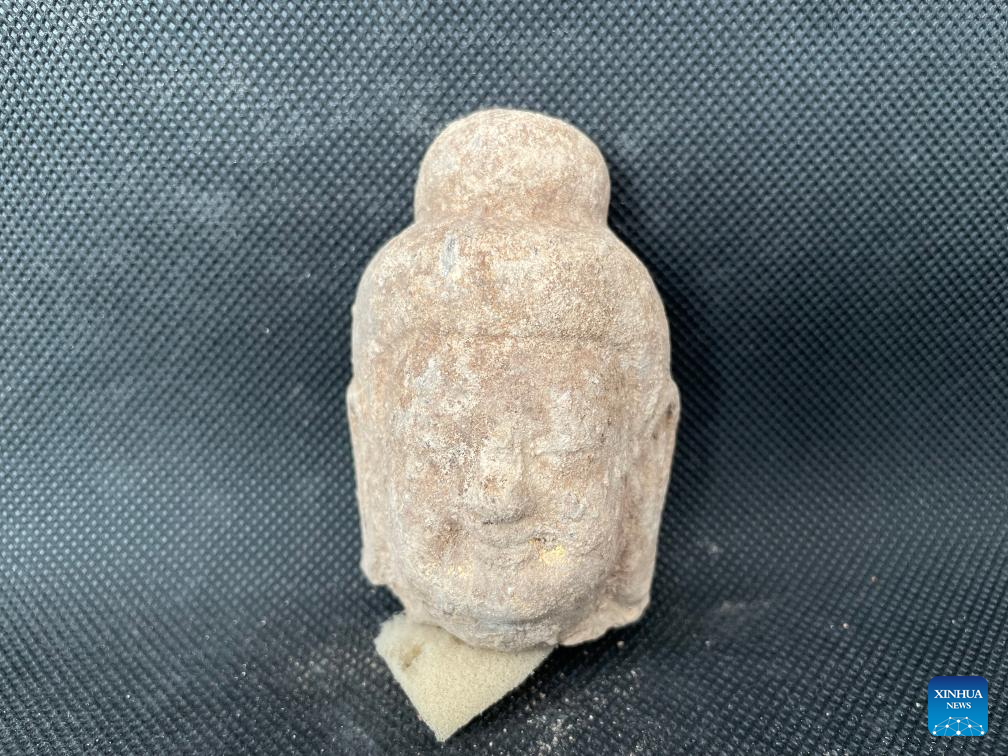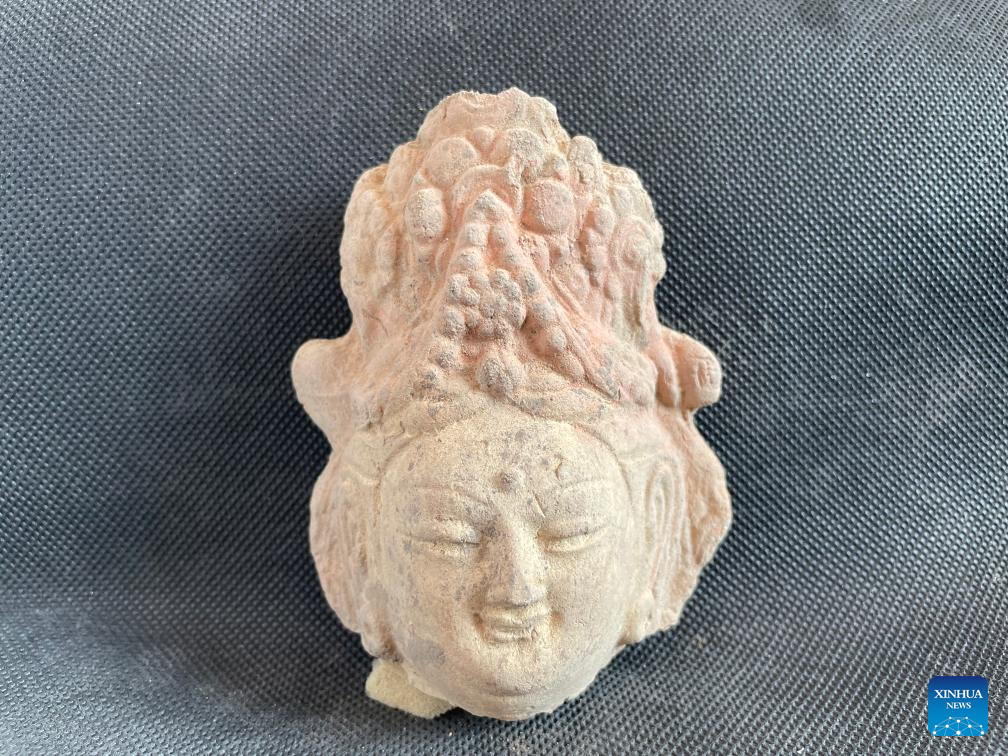
This undated file photo shows a stone Buddhist head unearthed at an ancient Buddhist temple dating back to the Northern Wei Dynasty (386-534) in Pingcheng District, Datong, north China's Shanxi Province.(Xinhua)
TAIYUAN, March 12 (Xinhua) -- A Buddhist temple dating back to the Northern Wei Dynasty (386-534) has been unraveled in Pingcheng District, Datong City of north China's Shanxi Province.
Believed to have been an official temple or a royal one, the ancient temple is located some 300 meters from the palace ruins of the Northern Wei Dynasty, with a pagoda as its center, said the provincial institute of archaeology.
The researchers found a square pit with pearls, coral jewellery and brass rings in the middle of the pagoda foundation. More than 200 well-preserved Buddhist statues were also unraveled inside the pagoda. Some of the statues were painted while some were gold foil-decorated.
The pagoda is believed to be painted with murals as its peeling wall remains suggest, said Li Shuyun, deputy head of the institute. "It is the most well-preserved pagoda foundation remains that Datong has ever discovered, providing important physical research materials for the study on architectural forms of Buddhist pagodas at that time," Li added. ■

This undated file photo shows a stone Bodhisattva head unearthed at an ancient Buddhist temple dating back to the Northern Wei Dynasty (386-534) in Pingcheng District, Datong, north China's Shanxi Province.(Xinhua)



